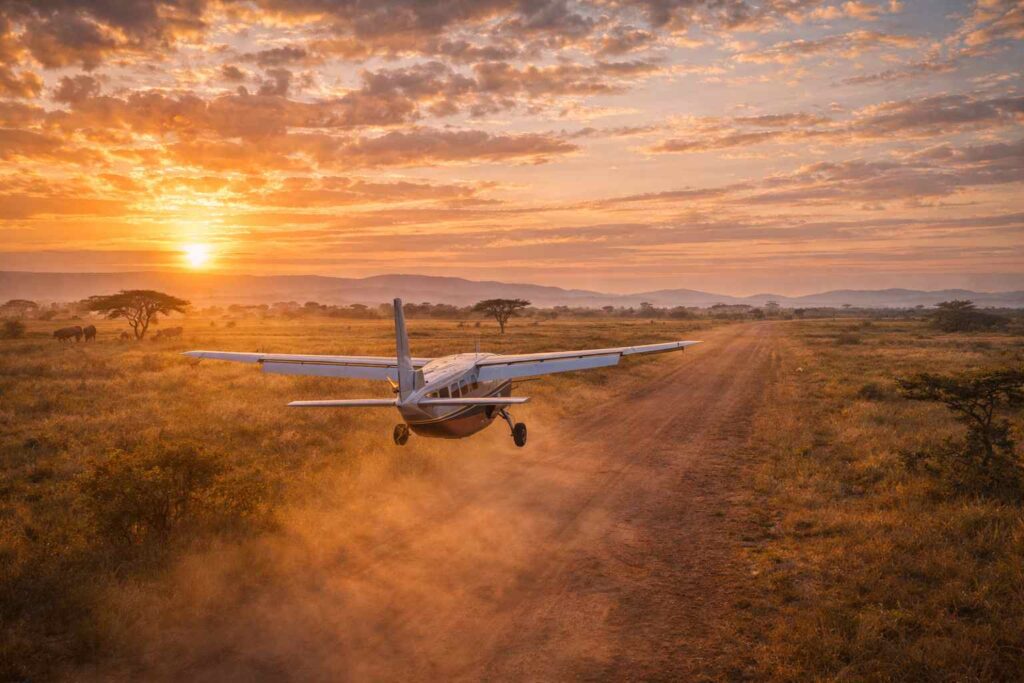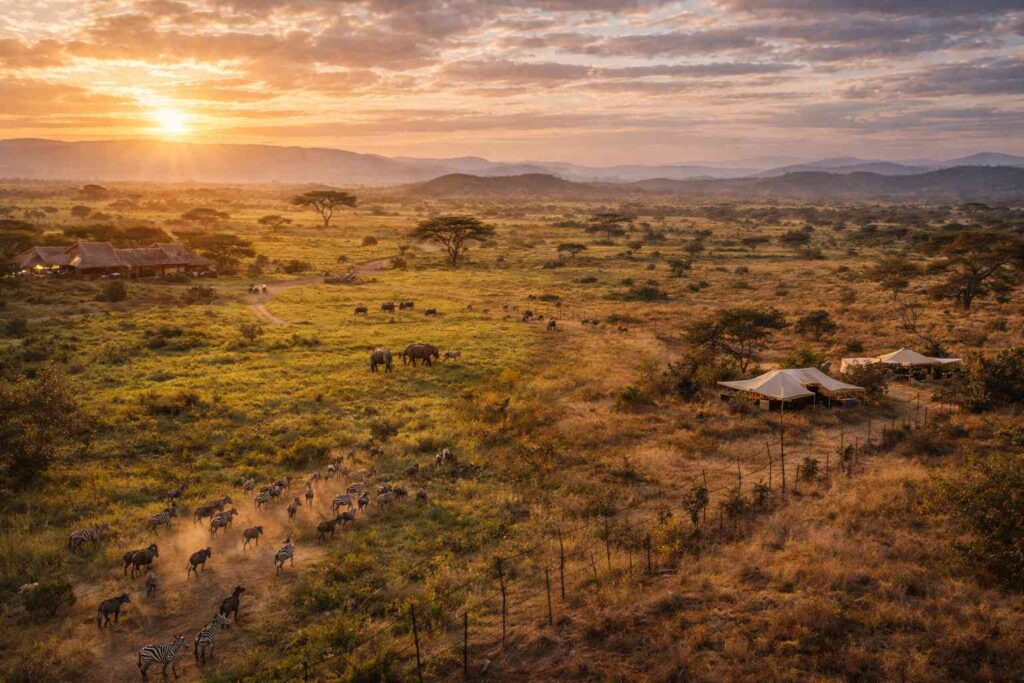Jet lag can dull the magic of your first days on safari — when every sound, scent, and sunrise should feel unforgettable. If you’re flying in from North America, Europe, or Asia, a time zone shift of 5 to 10 hours can affect your energy, sleep, and ability to enjoy early game drives. But with smart preparation, you can land in Africa refreshed and ready to explore.
Here’s how to manage jet lag so your safari starts on the right foot.
Why jet lag matters on safari
Safari days start early — often before sunrise — and involve long drives, heat, and intense sensory experiences. Arriving groggy or sleep-deprived can make your first game drives feel like a blur. Worse, it can lower your immune response, making you more vulnerable to mild illness or travel fatigue.
Adjusting to Africa’s time zone in advance helps you enjoy more from day one.
Adjust your sleep before departure
Shift your schedule gradually
3–5 days before your flight:
- If traveling east (e.g., from the U.S. to Kenya): Go to bed and wake up 30–60 minutes earlier each day.
- If traveling west (e.g., from Asia to South Africa): Shift your sleep later by 30–60 minutes per day.
This pre-adjustment softens the shock of sudden time changes.
Avoid late nights before your trip
Prioritize rest before your departure. The goal is to board the plane with a sleep debt as close to zero as possible.
Time your flights strategically
Choose flights that land in the afternoon or early evening local time
That allows you to:
- Stay awake for a few hours
- Have dinner
- Go to bed close to local bedtime
Avoid red-eyes that land early morning unless you’re confident you can stay awake the whole day.
Consider breaking the journey with a stopover
Spending a night in Istanbul, Doha, or Dubai can break long-haul fatigue and help reset your rhythm before arriving in Africa.
Use your arrival city to recover
Add 1–2 buffer nights in Nairobi or Johannesburg
Instead of rushing straight into the bush, plan for a night or two in a hotel where you can:
- Rehydrate and reset
- Walk outdoors and get sunlight
- Sleep in or nap gently (avoid over-sleeping)
- Adjust to local mealtimes
Many travelers report better energy and fewer symptoms when easing into safari rather than diving in the next morning.
Tips during your flight
- Set your watch to destination time as soon as you board
- Avoid alcohol and heavy meals, which disrupt sleep
- Hydrate constantly (drink water every hour)
- Use an eye mask and earplugs to block noise and light
- Try melatonin (0.5–3 mg) if adjusting to an earlier bedtime
First safari morning: how to adapt quickly
Even with prep, your first wake-up call at 5:30 am may feel brutal. These help:
- Expose yourself to sunlight early — natural light resets your internal clock
- Eat a protein-rich breakfast to signal morning to your body
- Skip naps longer than 30 minutes until you’re fully adjusted
- Keep your day active — movement helps shake off fatigue
Within 48–72 hours, most travelers adjust naturally if they follow a consistent sleep and wake rhythm.
Final thoughts
Jet lag doesn’t have to dim your safari dreams. With smart flight planning, gradual adjustment, and a short reset window on arrival, you’ll step into the wild energized and ready. Africa is best experienced fully awake — from your first lion roar to your last sundowner.
FAQs
Gradually adjust your sleep schedule 3–5 days before flying, stay hydrated, and plan a short buffer stay in your arrival city.
Yes, adding a night or two helps your body adjust and reduces the risk of starting your safari sleep-deprived or fatigued.
Yes, taking 0.5–3 mg of melatonin at local bedtime can help shift your internal clock, especially when traveling eastward.
Aim for afternoon or early evening arrivals so you can stay awake until local bedtime and sleep through the night.
Most travelers adjust within 2–3 days if they stick to consistent sleep and light exposure routines.






